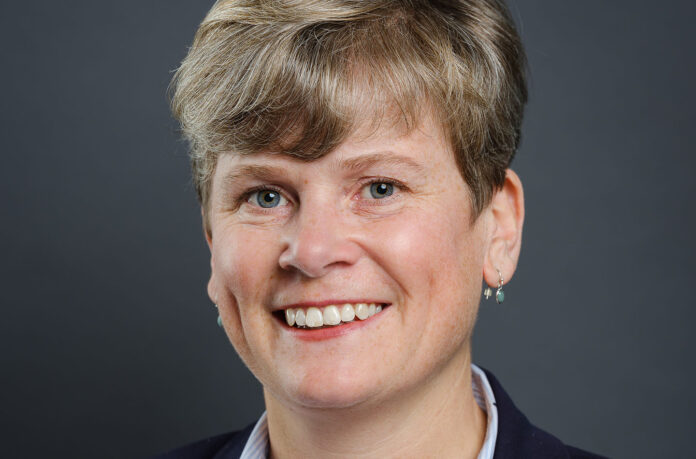The regeneration of wild Pacific salmon populations is fundamental to rebuilding a healthy ocean ecosystem. Wild Pacific salmon are also vitally important for food and cultural purposes, of many Indigenous communities throughout British Columbia. This is why protecting wild salmon stocks and their habitat is a priority for both the Government of Canada and the Province of British Columbia.
The Minister of Fisheries, Oceans, and the Canadian Coast Guard, the Honourable Joyce Murray and Fin Donnelly, BC’s Parliamentary Secretary for Fisheries and Aquaculture on behalf of the BC Minister of Land, Water, and Resource Stewardship, the Honourable Josie Osborne, announced $30.5 million in funding for 22 projects under the British Columbia Salmon Restoration and Innovation Fund (BCSRIF).
Today’s investment supports monitoring, research and planning processes that will enhance our understanding of the critical factors affecting local salmon populations. The results will help inform future management decisions as we work to restore and rebuild key salmon habitats throughout the province. Of the 22 projects, 18 will be led by or conducted in partnership with Indigenous organizations and communities across British Columbia.
A few notable projects announced today include:
• the Chemainus/Koksilah Twinned Watershed Salmon Sustainability Project aims to record and assess the status, abundance, and preferred habitat of various salmon species in the Chemainus and Koksilah rivers and then use that data to monitor demonstration restoration initiatives addressing low flow impacts on critical anadromous salmonid habitats in those watersheds.
• the Pacific Salmon Foundation’s project to expand and improve the use of the Pacific Salmon Explorer, an interactive data visualization tool that tracks and reports information on the status of fish Conservation Units and their freshwater habitats in BC.
• the next stage of Makeway Charitable Society’s Resilient Waters initiative will restore connections to the salmon habitat to the Lower Fraser River that has long been broken by flood control infrastructure; and
• the First Nations Fisheries Legacy Fund Society’s project is to enhance the capacity for monitoring and managing wild salmon habitat in First Nations by integrating community mapping and geospatial technologies.
• BCSRIF funding is open to Indigenous communities, industry associations, environmental non-governmental organizations, commercial enterprises, and academic institutions. Investments through this program will help recover salmon habitat, benefit commercial and recreational fishing and aquaculture, as well as support science and research initiatives.
Further information on the application process, timelines and program criteria are available on the BCSRIF website:
www.bcsrif.ca“We have a once-in-a-generation opportunity to protect and rebuild wild Pacific salmon stocks. BCSRIF harnesses British Columbians’ shared passion and commitment to finding innovative ways to regenerate wild salmon abundance and the fisheries they support. Our government is committed to making the needed investments in programs that work to help salmon populations grow and thrive. We aim to build the foundation for a sustainable future.
The Honourable Joyce Murray, Minister of Fisheries, Oceans, and the Canadian Coast Guard
“It’s increasingly important that we use innovation, infrastructure and science partnerships to help protect and restore priority wild B.C. fish populations inland and on the coast. BCSRIF is one of our prime federal-provincial tools that enable such partnerships with strong funding support. These 22 new BCSRIF projects will be models that teach us and inspire many more. We’re committed to keeping working to support wild fish and fisheries and the British Columbians who make their living from them.”
The Honourable Josie Osborne, BC Minister of Water, Land, and Resource Stewardship
“Congratulations to the latest project recipients and thank you for your commitment in helping conserve, protect and restore salmon and steelhead populations. These diverse BCSRIF projects vary in location, scale and proponents; together, they all contribute to protecting and restoring wild fisheries, creating a more sustainable future for local communities and workers.”
Fin Donnelly, Parliamentary Secretary for Fisheries and Aquaculture, Government of British Columbia
Quick Facts
Launched in March 2019, the British Columbia Salmon Restoration and Innovation Fund has made investments in support of habitat protection and restoration, ensuring the fish and seafood sector in British Columbia is positioned for long-term environmental and economic sustainability.
Eighty-three projects have received BCSRIF funding since its inception in 2019, representing an investment of more than $116 million in the rebuilding of wild Pacific salmon stocks and supporting the BC fish and seafood sector.
Additional information on projects selected for BCSRIF funding can be found online here.
The BCSRIF is a 70 percent federal, 30 percent provincial cost-shared program.
The Government of Canada initially invested $100 million over five years to the BCSRIF, to support projects focused on habitat protection and restoration, including the maintenance of healthy and diverse salmon populations. Budget 2021 committed an additional investment of $100 million to expand the program. The Government of British Columbia’s current investment is $42.85 million over five years.
BCSRIF funding is open to applications from Indigenous communities, commercial organizations in the wild fisheries and aquaculture sectors, recreational fisheries, as well as non-commercial organizations such as universities and research institutions, industry associations, and conservation groups.
The Government of Canada’s $647.1-million Pacific Salmon Strategy Initiative investment is the largest-ever government investment in efforts to save Pacific salmon. Through this investment, Canada will guide a strategic and coordinated long-term response, rooted in collaborative action, to stabilize and protect Pacific salmon for the ecosystems, people, and communities that depend upon their sustainability.









